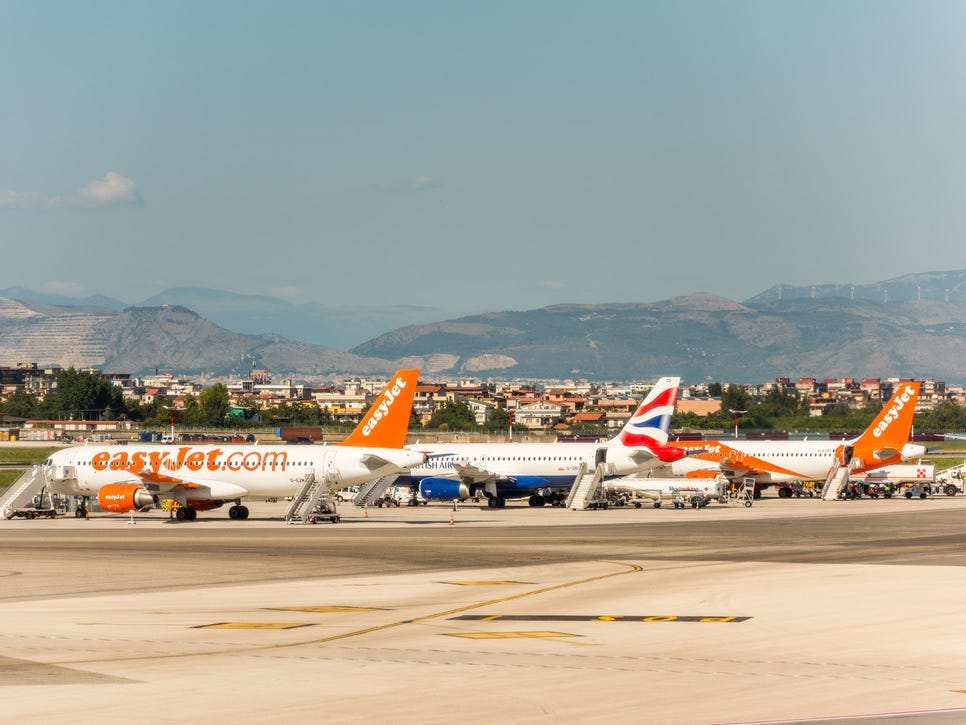- Airlines globally have cancelled hundreds of flights, citing labor shortages.
- Insider spoke to aviation consultants and a union boss to discover why airlines are short-staffed.
- They blame COVID-19, uncertainty, and the tight labor market for leading carriers to cancel flights.
It's not a surprise if you're feeling nervous about flying at the moment. The list of global airlines to have canceled flights over the last few months reads like a departure board.
Delta, Lufthansa, British Airways, Southwest, EasyJet, Alaska, and JetBlue are among the long list of carriers to have all culled flights in by the hundreds. The result has been long queues at airports, lost luggage, long layovers, and acute disappointment.
There are multiple reasons fueling the disruptions from bad weather to the economic impact of the war in Ukraine, but labor shortages have been cited as a common reason.
Insider spoke to two aviation consultants and a union boss about why the industry is struggling with staff shortages.
Firstly, it's complicated …
The labor shortage is "not black and white," said John Strickland, of JLS Consulting. Different employers within the industry are affected in their own individual way.
Some aren't suffering from a shortage at all, either because they were able to retain more of their workforce during the pandemic, or received longer packages of support from their governments.
While highly disruptive for passengers, the cancellations represent a small proportion of flights globally, he said.
The pandemic exacerbated existing shortages and changed the labor market
Like many industries, staff shortages were a long-running problem before the pandemic but the pandemic made it much worse as airlines were forced to furlough or let go of workers in their thousands.
Oxford Economics estimates that globally, there were 2.3 million fewer people working in aviation by September 2021 compared with the beginning of the pandemic, per the FT.
"Now that you're coming out of COVID, and the demand is actually showing signs of rapid recovery. You're starting to see that they have fewer pilots, and the same amount of flying to do," said Umang Gupta, of Alton Aviation, a consultancy. Something that was made worse by airlines offering pilots voluntary opt-outs during the pandemic, Gupta added.
Add into that a squeezed post-pandemic labor market, which is making it harder for some aviation companies to recruit as workers demand higher pay, or reflect on their career.
"Now you're seeing that people are not ready to take the job at the salary levels that were offered before so they have to pay more to get the same people," Gupta said.
Perhaps the best example of this is a simmering battle ongoing at London's Heathrow airport, where 500 check-in operators for British Airways are threatening to strike June. Union bosses who are leading the strikes say the airline is yet to reinstate a 10% pay cut implemented during the pandemic.
British Airways did not immediately respond to Insider's request for comment on the negotiations.
In general, industry leaders have "been too optimistic about the preparedness of people they've let go to come back," said Mike Clancy, general secretary of the Prospect union, which represents air traffic controllers, licensed technical engineers, and air traffic systems specialists in the UK.
"At the present minute, if you are working in an airport environment, it's even more stressful than normal. Because the traveling public are not happy," Clancy said.
Uncertainty has not let bosses adequately plan
Airline bosses have been accused of failing to act quickly enough to counter staff shortages and of optimistically overselling tickets for flights that they knew they couldn't service.
Strickland — who used to work in network planning for airlines — insists amid two years of uncertainty, emergent COVID-19 variants and constantly changing travel restrictions, airlines have been unable to plan adequately because their normal planning cycle has been disrupted and the data which supports it effectively rendered almost useless.
The swathe of cancellations the industry is seeing is an attempt to slim down capacity and stabilize operations.
How long will it last?
No one knows quite how long it could last.
The dropping of the requirement for international travellers into the US to test negative for COVID-19 is likely to further boost international traffic. Gupta highlights that many East Asian airlines are still yet to resume full international travel.
"I can't see the summer being anything but lumpy and bumpy," Strickland said. "There are many uncertainties."

